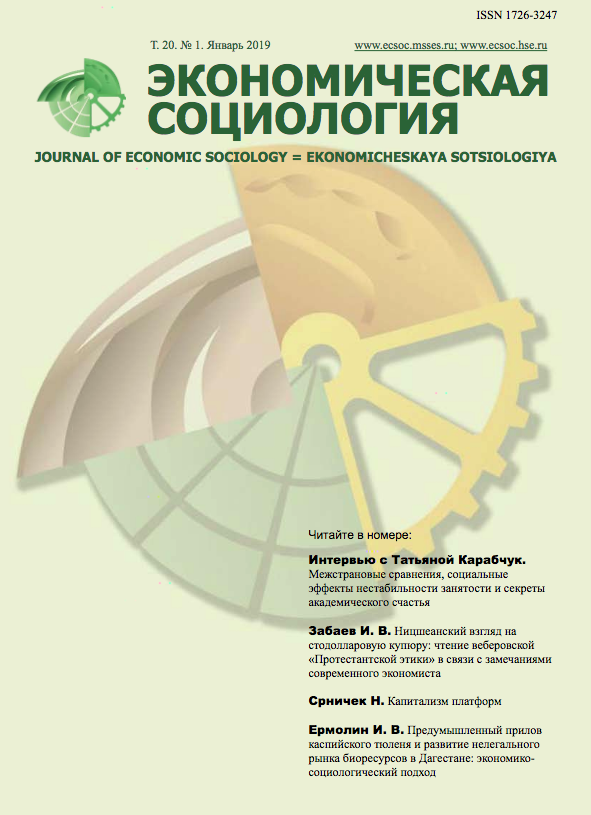A Nietzschean Take on a Hundred-Dollar Bill: Reading Weber’s “Protestant Ethic” in Connection with a Contemporary Economist’s Comments
Abstract
‘Weber’s Hypnosis’ by HSE Professor Rostislav Kapeliushnikov [Kapeliushnikov 2018a: 25–49; Kapeliushnikov 2018b: 12–42] was a point of departure for writing this article. Answering to the examination of Weber’s text by a contemporary economist, the author finds it necessary to discuss the ethical component of “The Protestant Ethic and the Spirit of Capitalism” in detail. The article draws special attention to the use of the ethical variable there as well as its values: the calling and the humility (also, the ressentiment). The author says that for Weber, it is important to understand where the new type of thinking comes from, the one that concentrates the entirety of life around work (e.g., business, acquisition). The pursuit of acquisition loses the religious and ethical content, but the concept of professional duty remains. According to Weber, this evolution will result in the appearance of the last man—a soulless person locked inside his profession. The author shows that Weber’s interpretation of the Protestant doctrines, where the aim of work is to “get rid of the fear of damnation”, is parallel to the Nietzschean idea of the unpleasant role of “the blessings of work”.
In order to answer the critics’ questions, the author discusses the problems of the spirit of capitalism, as it is described in the “Protestant Ethic”. Some of the components of this spirit are described, such as the calling (Beruf), acquisition (Erwerb), and duty (Pflicht). The spirit of capitalism is differentiated from gain, and the connection between the notion of capitalism and that of economic growth is examined; fragments of texts by B. Franklin and D. Defoe, which served as a prototype for Weber for the spirit of capitalism, are analyzed. In the end, the author shares thoughts on how Weber’s logic can be applied to analyzing contemporary reality, what questions it lets one raise, and why the text that, according to Professor R. Kapeliushnikov, is a myth that has no connection to reality, is still read today.













